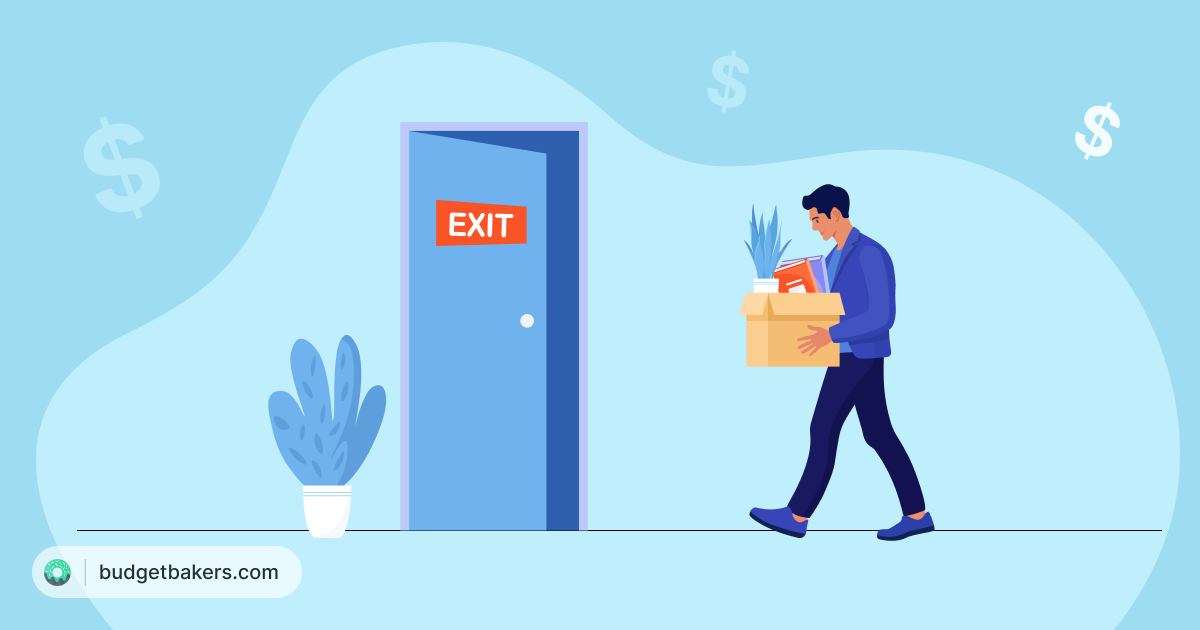Researched, written and fact-checked by financial expert and business journalist
Leonie Bauer
Debt is a reality for many of us. While it can be a useful tool for achieving important financial milestones like owning a home or completing a college education, it can also be a significant source of stress and worry. Especially in times of inflation, when prices for daily necessities are sky high and financial insecurity is severe. If you are one of the millions of people currently struggling with their finances, you may be wondering when and how to pay down debt to minimize the impact on your financial well-being.
In this blog article, we’ll explore the factors that determine when it’s best to pay off debt and the strategies you can use to manage your debt effectively. Whether you’re looking to optimize your debt repayment plan or just starting to explore your options, this text will provide valuable insights and practical tips to help you achieve financial freedom and peace of mind.
Why Is it Challenging to Pay Off Debt During Inflation?
Paying off debt is always difficult, both financially and emotionally. But it’s especially challenging during periods of inflation. Inflation erodes the value of money, making it harder to pay off debt. In addition, this year’s predicted recession can lead to job losses and financial instability..
What does that mean in concrete terms? In times of inflation, purchasing power of money declines. So the money you repay is worth less than it was when you borrowed it. The prices of goods and services go up. This means you need more money to buy the same amount of goods or services. So if you have debt and try to pay it back during inflation, it may be harder to pay the amount you originally borrowed.
In addition, current inflation has caused interest rates to rise to offset the higher cost to lenders. So it becomes more expensive to repay debt. When inflation is this high, it also causes wages to not keep up with increased prices. So your disposable income decreases.
WHEN to Pay Off Debt During Inflation
First of all, remember that even in tough economic times, you have options for managing your debt. It all comes down to the right timing.
The best time to repay debt depends on your individual financial situation. If you are able to repay your debt as soon as you take it out, this is the best time to repay it. This way, you avoid unnecessary interest payments and minimize the risk of getting into more debt.
Are you experiencing financial hardship or is your debt affecting your ability to pay your bills, you should try to repay your debt as soon as possible. This way you will avoid additional fees and interest payments and improve your financial situation.
It also makes sense to pay off debt whenever you have extra money. Such as from a bonus, a tax refund, or inheritance. This can help you save on interest payments.
What you should also consider is paying down debt if you plan to take out a loan in the near future. This will improve your credit score and get you better loan terms.
What’s also important:
- Prioritize high-interest debt: During inflation, it’s more important than ever to prioritize paying off high-interest debt. These debts, such as credit card balances or payday loans, tend to have the highest interest rates and can quickly spiral out of control if left unchecked.
- Take advantage of low-interest rates: If you have a mortgage or other long-term debt, low-interest rates can be an opportunity to reduce your monthly payments and save money. Refinancing your debt or negotiating with your lender can help you take advantage of lower interest rates and make it easier to manage your payments.
- Focus on essential debt: During inflation, it’s important to focus on essential debt, such as housing or medical expenses. While it’s tempting to put all your resources into paying off debt, neglecting essential expenses can lead to further financial instability and even greater debt in the long run.
How to Repay Debt During Inflation
Now that we’ve explained WHEN is the best time to pay off debt, we want to show you some useful strategies on HOW to repay your debt without falling into financial ruin.
Fixed-rate loans
If you’re currently thinking about taking out a loan, it may make sense to opt for a fixed-rate loan to minimize the impact of inflation on interest rates. If interest rates rise, the interest rate on the fixed-rate loan will remain the same, reducing your debt burden.
Investing in inflation protection
Investing in inflation protection such as stocks, commodities, or real estate can help offset the loss of value of money due to inflation and facilitate debt repayment.
Debt negotiation
If you’re having trouble paying off debt, it may make sense to negotiate with creditors to get debt restructured. That is, you make a payment plan: This may mean reducing or deferring your monthly payments to better fit your financial needs. You can also team up with a debt counselor. They can help you negotiate a payment plan or reach an agreement with your creditors.
Avoiding new debt
To minimize the debt burden during inflation, try to avoid new debt and instead reduce spending and save. If you want to learn how to save more money, read our tips for saving energy and groceries during inflation.
Increase income
Increasing income can help pay off debt faster and minimize the burden of inflation. This can be achieved by increasing salary or through additional sources of income such as part-time jobs or investing in passive sources of income. Check out the best strategies to get a pay raise in 2023.
Create a budget
Make a budget that prioritizes your debt payments and reduces expenses in non-essential areas. This can help you stay on top of your finances and prevent further debt accumulation. Try the budgeting app Wallet by BudgetBakers to keep track of your debts as well as all your other expenses.
The Bottom Line
It’s important to remember that inflation can be a complex and unpredictable phenomenon, and there’s no one-size-fits-all solution for managing debt during inflation.
Always remember how important it is to prioritize your financial well-being and make informed decisions about your debt repayment strategy. It’s a good idea to stay informed and, if necessary, speak with a financial advisor or debt counselor who can provide personalized guidance and advice.
Ultimately, the key to repaying debt during inflation is to be disciplined and consistent with your payments. By making a plan and sticking to it, you can successfully manage your debt and avoid falling deeper into debt.


